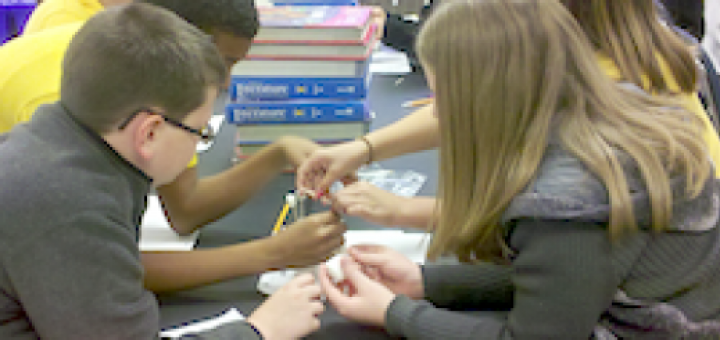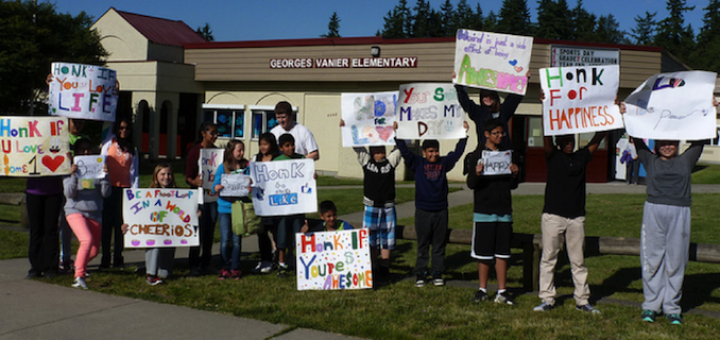Teaching and learning in grades 4-8
The professional wisdom of teacher educator and consultant Barbara Blackburn shines through in “Motivating Struggling Learners,” writes 7th grade math teacher and coach Karen Bloom. Blackburn’s clear advice and multiple resources make the book “fantastic.”
The unique design of STEM lessons allows students, regardless of ability, access to real-life learning experiences. Giving students with special needs authentic STEM experiences can help them get ready for a future where all types of people live, work and solve together.
Katie Egan Cunningham stresses the importance of caring for our students’ stories even as we explore fiction and story-making with them. Reviewer Mary Langer Thompson highly recommends the book for its practical focus mixed with a philosophy beautifully expressed.
Jeff Benson’s 10 Steps to Manage Change in Schools offers an efficient blueprint for leadership teams, forcing participants to think critically about the rationale for change and its likely impacts. Sustainable improvement will justify the time commitment.
Sarah Cooper’s 8th graders recently attempted to create a “consensus document” on U.S. gun laws. She describes the research and discussion process, then shares what she and the students learned about consensus building when issues are highly controversial.
Setting goals with students is necessary but not sufficient, writes co-teaching coach Elizabeth Stein. Co-teachers must then focus their attention on helping students develop actionable steps to achieve the goal, with teacher guidance all along the way.
Genius Hour gives students the opportunity to be autonomous in their learning. Sometimes, though, they need a little start-up help. Experts Gallit Zvi and Denise Krebs share lots of starter ideas for students and classrooms and urge readers to add their own.
“The Educator’s Guide to Writing a Book” makes the process of creating a book-length manuscript less daunting, more doable, and much less mysterious, says reviewer Susan Schwartz, who recommends it to anyone who has the urge to share what they’ve learned.
The activities in Lisa Morris’ book on teaching ELA with the CCSS in grades 2-5 are easily adapted for each level, including middle grades 4&5. Reviewer Linda Biondi also liked the extensive mentor texts and came away with oodles of lesson ideas.
Rubrics are important tools, says author and veteran MS educator Elyse Scott, but teachers need a more whole-student approach to formative assessment and feedback — one that attends “to that most basic need of young adolescents: one-on-one communication.”







































